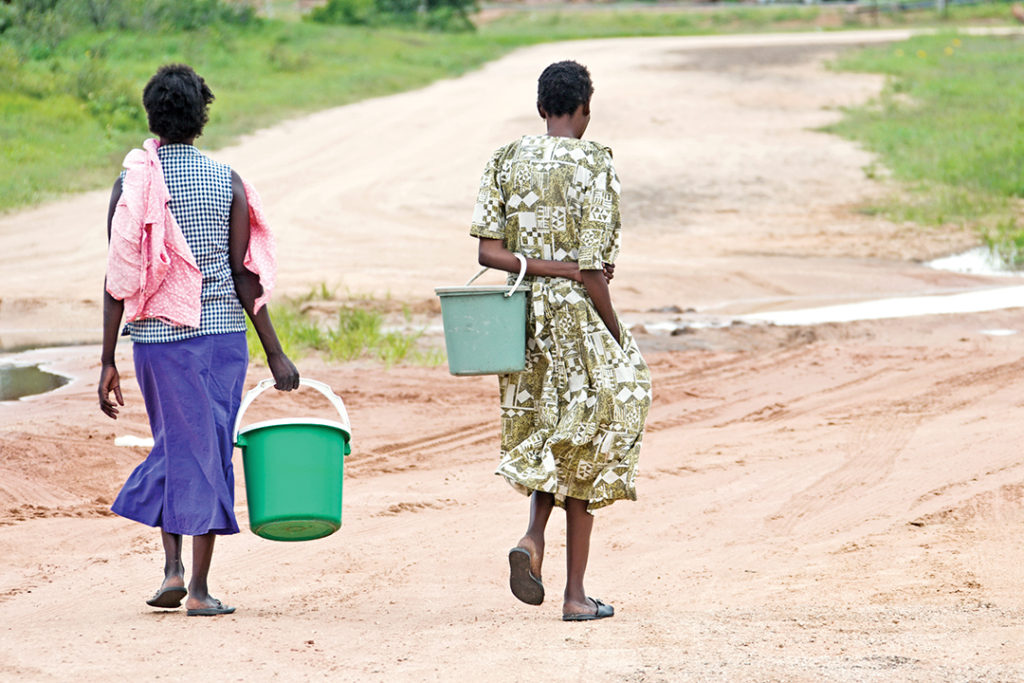THE WORLD BANK
In Tanzania, the 3,600 residents of the village of Gidewari once lived a life of striking irony, trekking more than 8 kilometers each day for water, despite living next to a lake. Lake Gidewari contains saltwater, and thus its water is unfit to drink.
“My first chore very early each day was to go and fetch just one 20-liter jerrycan of water from Dareda Catholic Church, which is a 5-kilometer walk, and then walk back home,” said Rosalie Margwe, a wife and mother of three. “The water there was also not clean, but we had no option.”
For those unable to walk the distance to the church, the option was to buy three 20-liter jerrycans of water for a total of 1,000 shillings (44 cents). “That is a lot of money to spend in a day here,” Margwe said.
“We had to attend to our gardens and yet, even with all the family members helping, on a typical day it would take no less than four hours just fetching water for domestic use and for our animals,” said resident Elizabeth Safari. “Sometimes it was necessary for the children to miss school or go late in order to help with fetching water.”
Help for the villagers finally came in November 2016 when the Birisima water project was launched. Financed by the Water Mission, the World Bank, and the Nordic Development Fund, the Birisima project is one among a group of pioneer rural units that are now operated by solar-powered pumps as an innovative solution to Tanzania’s rural water supply challenge.
The shift to solar power has had a striking financial impact on rural water operations. Although electricity and diesel-powered technologies pose a financial burden, solar can be viewed as a 20-year energy subsidy. Through solar power, a village will enjoy free energy for the duration of the water plan, allowing it to set aside savings for future maintenance and repairs.
Operating for 6.5 hours, a solar-powered water pump can produce 24,000 liters per day. “The water is safe and clean since it is treated with chlorine,” said Jason Asugu, project coordinator.

